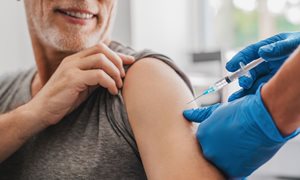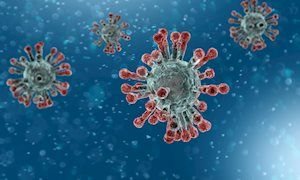
People without a residence permit were more severely affected by the corona pandemic than other Dutch citizens. The virus and the measures taken often led to loss of work and housing, and thus to a precarious existence. This is evident from research conducted by Maria van den Muijsenbergh of the Radboud University Medical Center and her team. They provide recommendations for the future.
People without residence permits are the most vulnerable group of migrants. They stay in the Netherlands illegally and have to provide for themselves with illegal work. They also depend on renting on the black market for accommodation. In the Netherlands there are approximately forty thousand illegal migrants, throughout Europe around four million.
‘Vulnerable groups are often affected more than others by major problems such as a pandemic,’ says Maria van den Muijsenbergh, general practitioner and professor at the Radboudumc. She studied the effects of the pandemic on vulnerable groups, in projects of the Radboud University Network on Migrant Inclusion and Amsterdam Medical Centre, together with the Fairwork foundation and Pharos. In November 2020, during the second lockdown, the researchers surveyed fourteen illegal migrants about awareness of measures and the effects of the pandemic on their lives.
Vulnerable group
The survey showed that the illegal migrants were well aware of the pandemic. Van den Muijsenbergh: 'Information was initially only available in Dutch. But they received information in their own language through fellow migrants or other channels. They were even early adapters and wore mouth caps early on because they see themselves as a vulnerable group. After all, they are not allowed to get health insurance and if work and income are lost they become homeless.'
However, this group found it difficult to follow the measures. 'Undocumented migrants often work in people's homes, as cleaners, babysitters or caretakers. Therefore they could not work at home and often had to travel by public transport,' explains Van den Muijsenbergh. 'The families where they worked dealt with the measures very differently. Sometimes they didn't follow the rules at all, or they didn’t inform the migrants if family members had corona. That created an unsafe feeling.'
Hassle
Many illegal immigrants lost their jobs partially or completely. For example, because people started working at home and therefore no longer needed a babysitter. Or they didn't want another person in the house because of the risk of infection. Illegals have no legal protection in this regard. Layoff led directly to lack of money and loss of housing. Help came from the community, migrant churches took in many people.
Access to health care was also difficult. Testing for corona was done in Dutch through online registration with the civil service registration number (BSN). But these people don't have that. It was also possible without a BSN, but even the staff at the Dutch municipal public health offices (GGD) didn't always know that and it meant a lot of hassle. The same applied to vaccination and the QR code: it was possible, but complicated. The family doctor was less accessible, and mainly by phone and online, which is difficult for these people.
Right to care
'Illegal migrants find it difficult to find information and believe they cannot get medical help because they have no money,' Van den Muijsenbergh outlines. 'While it is well regulated in the Netherland. Here illegal migrants are entitled to all medically necessary care, and care providers receive financial compensation. I think the Dutch GGDs really did their best, but still illegals didn't come for a test or a vaccination, for fear of deportation.'
How can we improve the situation in the event of another pandemic? 'We need to reach these people better, in their own language, through the authorities they come into contact with. They need to be able to physically visit the family doctor. We need more rules for employers who employ illegal immigrants. And we need to do a better job of pointing out to this group their right to care, vaccination and good working conditions, and make it clear that this bring them at risk.'
About the Publication
This Research is published in Frontiers in Communication: Undocumented Domestic Workers and Coronavirus Disease 2019: A Qualitative Study on the Impact of Preventive Measures. Maria van den Muijsenbergh, Marieke Torensma, Nathalia Skowronek, Tesseltje de Lange and Karien Stronks.
-
Want to know more about these subjects? Click on the buttons below for more news.
More information
Annemarie Eek

wetenschapsvoorlichter
Related news items

Higher level of antibodies when influenza vaccine and COVID-19 booster are administered intermittently Concurrent administration of both vaccines is safe, but the quantitative and functional antibody responses against SARS-CoV-2 were marginally lower compared to booster vaccination alone
13 April 2023 read more
Most COVID-19 ICU survivors experience symptoms one year after ICU admission Publication in JAMA
25 January 2022 75% of the COVID-19 survivors who were treated in the Intensive Care Unit (ICU) experience physical, mental and/or cognitive problems one-year post ICU. This shows the large-scale MONITOR-IC study led by Radboudumc. read more


